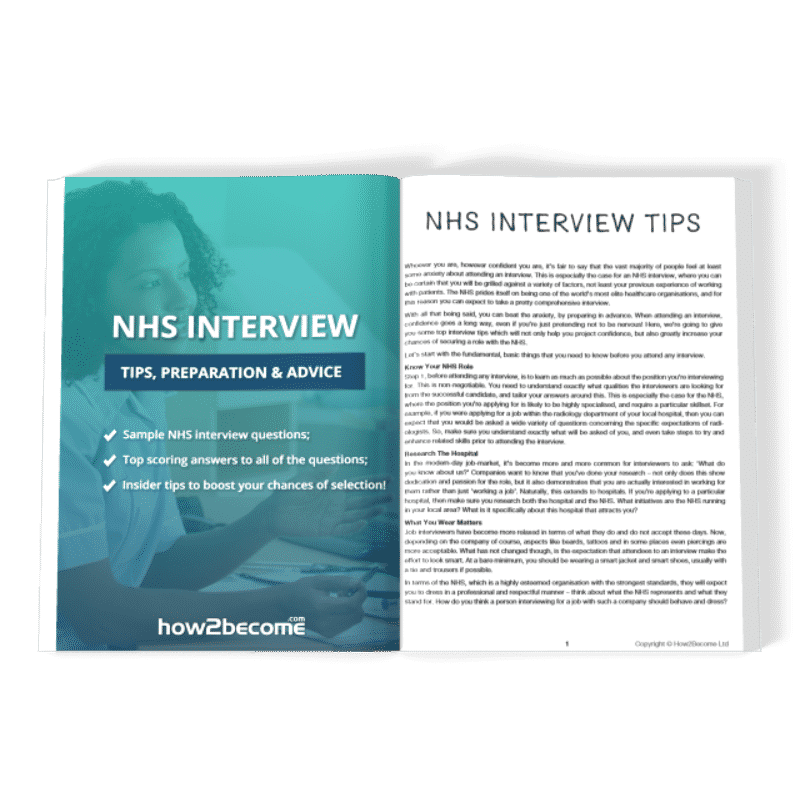Working as an NHS Call Handler is an incredibly stressful, challenging, but rewarding position. You must be fast, accurate, and prepared to deal with people who are in significant stress. In doing so, you will play a key role in saving lives, and ensuring that patients get the treatment they need. In this blog, we’ll give you some essential info about the process for becoming an NHS Call Handler, and show you some potential interview questions too.
What is an NHS Call Handler?
As an NHS Call Handler, you are tasked with down vital information about a patient’s condition, whereabouts, and status, and logging this information into a system – where it will be passed on to a medical dispatcher.
As you can imagine, this role brings significant pressure. You will be dealing with extremely distressed people on the other end of the phone – whether that’s someone who is suffering from a medical emergency themselves, or someone calling on behalf of another person.
In some cases, you may be required to talk a member of the public through emergency steps, such as reducing blood loss or placing the injured person in a safe position.

NHS Call Handler Skills and Qualities
Due to the stressful nature of the role, and the importance of the position in getting patient’s urgent care, NHS Call Handlers need to have a very particular and sustained set of skills. Below we’ve elaborated on some of these:
Patience. When a person is distressed or involved in a medical emergency, it’s fair to say that they won’t always be talking in a clear or sensible fashion, and it might be hard for them to follow simple instructions. This is where you need to be patient, calm and clear. Empathy plays a key part in this job – it’s essential to understand that people who are in pain or distressed aren’t necessarily going to be thinking clearly. If you show impatience, then you’ll only stress said people out further, worsening the situation.
Handling Pressure. Make no mistake, this is a high-pressure role. You will be placed under enormous amounts of stress, and therefore it’s imperative that you are able to handle this and deal with it in a way that doesn’t detract from your level of service. The NHS are looking for candidates who do not become overwhelmed in high pressure situations, and who can demonstrate an ability to work well within these circumstances.
Accuracy. Accuracy is absolutely essential. You need to be someone who can process facts, fast, and log them in an efficient and accurate manner. Inaccuracies in information when working as an NHS Call Handler can cost lives. Furthermore, this is a job where things change and develop extremely quickly – in the time taken for one conversation a patient’s medical condition can deteriorate rapidly. So, it’s vital that you’ve got the right info to pass on to medical dispatch.
So, how can you use these skills, and this knowledge, to get the job? Well, the answer is all in the NHS Call Handler Interview!
The NHS Call Handler Interview
The NHS Call Handler interview is the final stage in the selection process – and it’s also the toughest. Because of the nature of the role, you can expect to be grilled on a range of different subjects – including your past experiences with coping under pressure, and how you think you would cope with the demands of this particular role. The interviewers want to be sure that a) you know what you’re getting into, and b) that you are the right fit for the job.
Now, let’s look at some sample NHS Call Handler interview questions, and how to answer them!

Sample Interview Question 1
Why do you think you would be a good fit for a role as an NHS Call Handler?
This is a common opening question, and is designed to assess your personality against the job description/requirements. This is a great chance for you to not only show the interviewers that you do have the qualities they’re looking for, but also to demonstrate your knowledge about the role and what working as an NHS Call Handler entails. The better you can show your depth of research, the more likely you are to get the job. Here are some tips on how to answer this question:
- Make sure you study the job description in-depth prior to the interview. Take notes about the key behavioural qualities expected for an NHS Call Handler, and link these to your own personal traits.
- Don’t just tell the interviewers what you are good at. Make sure you link this with the job role and show an understanding of why these traits would be useful.
- It’s okay to sell yourself! Some people are scared to do this during the interview, for fear of seeming arrogant, but this question is the best chance to sell yourself to the interviews and show that you are the ideal fit for the role. So, do it!
Sample Interview Question 2
Can you give a past example of when you’ve dealt with a high-pressured situation in the past? How did you deal with it?
One of the core elements of the interview is that the interviewers won’t just want you to tell them that you can deal with pressure, they want to see that you’ve actually done this. So, when you get asked a question like this, you need to give a proper example from your past experience of when this has happened. Lay out your answer in a clear style, using the STAR method if you can, so that you don’t confuse the interviewers. Here are some top tips on how to answer this question:
- Don’t just tell the interviewers that you can do something, shown them that you’ve done it!
- When giving your example, make sure you put yourself in the best possible light.
- Aim to show the interviewers that you already have the experience and expertise that they’re looking for.
Sample Interview Question 3
What, in your opinion, is the single most important quality for an NHS Call Handler to have?
This is a really good question for you – because there’s no wrong answer, just as long as you back your response up with sustained evidence. Focus on one quality in particular, and show that you have knowledge and understanding of why this element is essential for NHS Call Handlers. For example, if you focused on accuracy, then you could tell the interviewers that you know this is important because a lack of accuracy can cost lives. Here are some top tips on how to answer this question:
- Try to expand on your answer. Don’t just tell the interviewers about said quality and why it’s important – show them that you can exhibit this quality and have done so in the past.
- Don’t downplay other qualities. Just focus on the one you’ve selected, and show why it’s essential.
- Make sure you cover why the quality is important. The interviewers want people who can recognise why the core skills matter, not just candidates who’ve read the job description.

If you want to further increase your chances of securing an NHS career, then we’ve got the perfect resource for you! Our NHS interview hub is jam-packed with tips and tricks on how answer just about any medical interview question that you can think of. So, don’t hang around. Sign up below, and get notified on how YOU can join the NHS!


